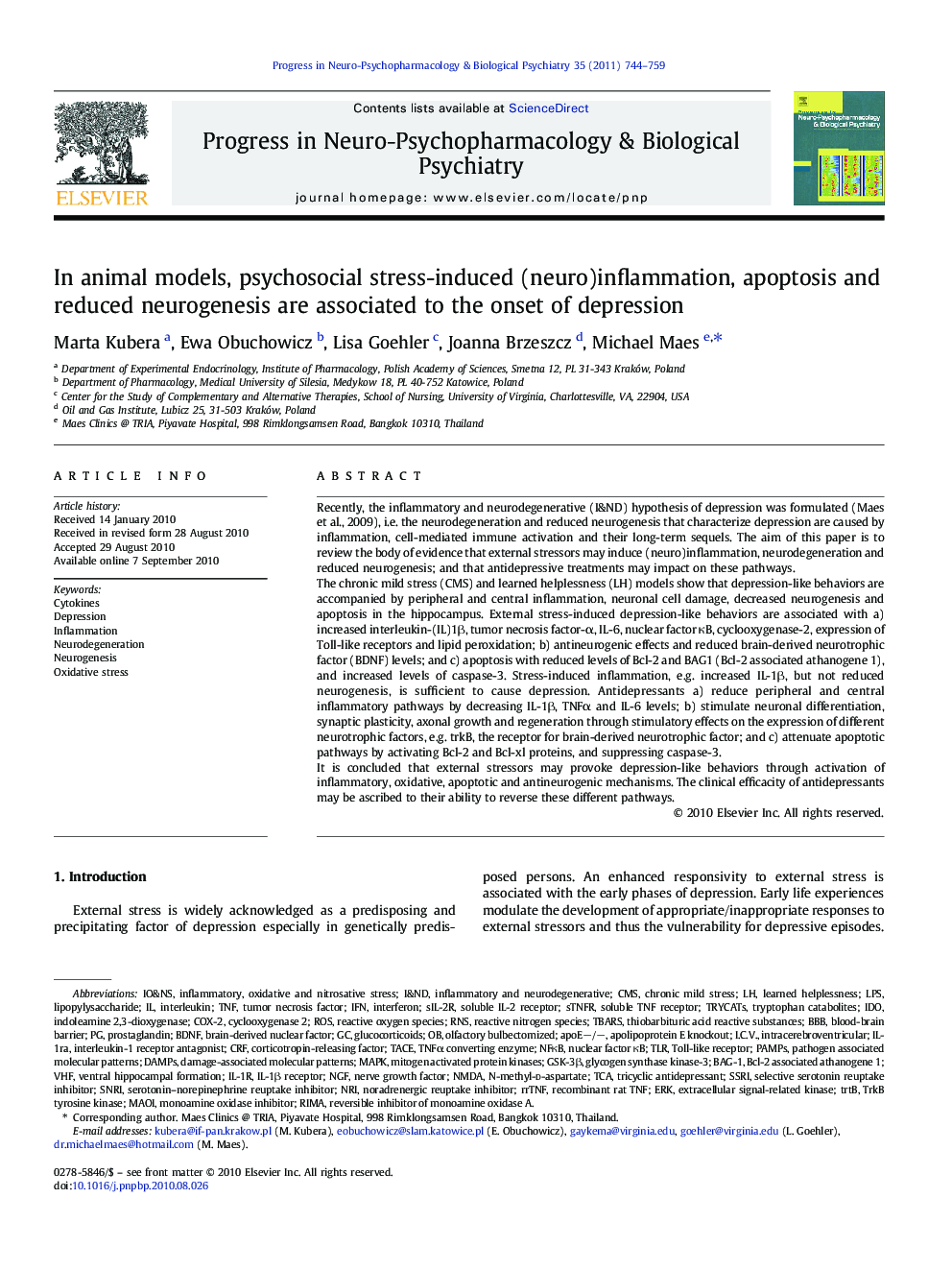| کد مقاله | کد نشریه | سال انتشار | مقاله انگلیسی | نسخه تمام متن |
|---|---|---|---|---|
| 2565471 | 1128059 | 2011 | 16 صفحه PDF | دانلود رایگان |

Recently, the inflammatory and neurodegenerative (I&ND) hypothesis of depression was formulated (Maes et al., 2009), i.e. the neurodegeneration and reduced neurogenesis that characterize depression are caused by inflammation, cell-mediated immune activation and their long-term sequels. The aim of this paper is to review the body of evidence that external stressors may induce (neuro)inflammation, neurodegeneration and reduced neurogenesis; and that antidepressive treatments may impact on these pathways.The chronic mild stress (CMS) and learned helplessness (LH) models show that depression-like behaviors are accompanied by peripheral and central inflammation, neuronal cell damage, decreased neurogenesis and apoptosis in the hippocampus. External stress-induced depression-like behaviors are associated with a) increased interleukin-(IL)1β, tumor necrosis factor-α, IL-6, nuclear factor κB, cyclooxygenase-2, expression of Toll-like receptors and lipid peroxidation; b) antineurogenic effects and reduced brain-derived neurotrophic factor (BDNF) levels; and c) apoptosis with reduced levels of Bcl-2 and BAG1 (Bcl-2 associated athanogene 1), and increased levels of caspase-3. Stress-induced inflammation, e.g. increased IL-1β, but not reduced neurogenesis, is sufficient to cause depression. Antidepressants a) reduce peripheral and central inflammatory pathways by decreasing IL-1β, TNFα and IL-6 levels; b) stimulate neuronal differentiation, synaptic plasticity, axonal growth and regeneration through stimulatory effects on the expression of different neurotrophic factors, e.g. trkB, the receptor for brain-derived neurotrophic factor; and c) attenuate apoptotic pathways by activating Bcl-2 and Bcl-xl proteins, and suppressing caspase-3.It is concluded that external stressors may provoke depression-like behaviors through activation of inflammatory, oxidative, apoptotic and antineurogenic mechanisms. The clinical efficacity of antidepressants may be ascribed to their ability to reverse these different pathways.
Journal: Progress in Neuro-Psychopharmacology and Biological Psychiatry - Volume 35, Issue 3, 29 April 2011, Pages 744–759